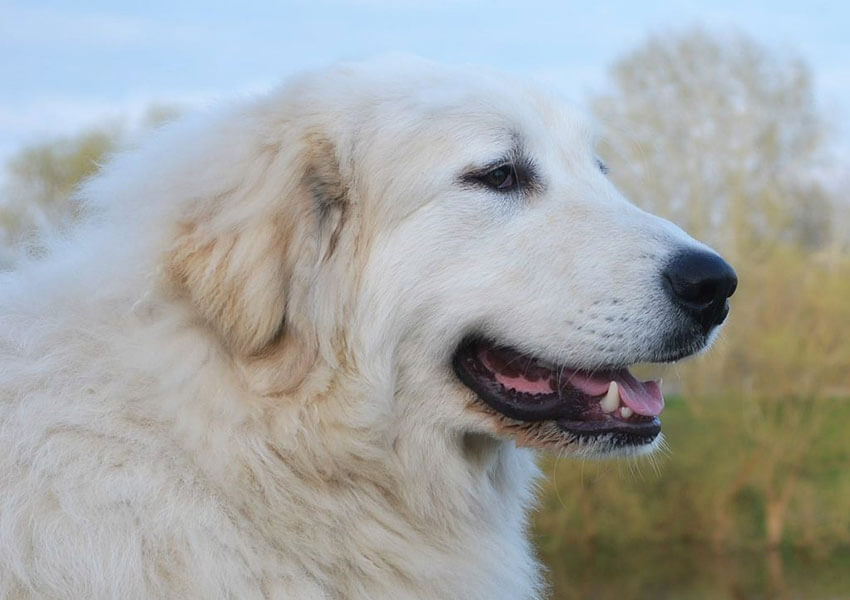What to feed a the Great Pyrenees
Particular attention must be paid to the feeding of puppies. Do not try to stimulate their growth as intense growth may lead to periostitis. Limping at a young age should be taken seriously, as it usually starts with periostitis and, if neglected, ends in arthrosis, which may become permanent.
These dogs need extra calcium intake either in the form of pills or milk. It is advisable to give them bones (not long bones) and raw meat (beef, turkey or chicken) from time to time, but they do not require the most expensive premium dog food.
Being a very large breed, Pyrenean Mountain Dogs need to rest after meals because they might have a gastric torsion if they romp with a full stomach.
Always have plenty of fresh water available, especially in the summer. They tolerate well unfavourable weather conditions. Light rains cannot soak their coat, and they are less susceptible to summer heat because of their white colour. In winter, they stay outdoors happily even in cold weather. They do not feel comfortable in a warm apartment.

Great Pyrenees health and care
They rarely suffer from joint problems or circulatory diseases. However, tick-borne infections are quite common, on the one hand, because ticks are difficult to detect in their thick coat, and on the other hand, because the effect of usual tick repellents is limited right because of the abundant coat. Use a variety of tick control methods simultaneously.
Their toenails do not need to be clipped if they move enough, except for the dewclaws. Their teeth are good, but they have a tendency to tartar build-up. Pyrenean Mountain Dogs are not susceptible to diseases. Eye inflammations are rare.
It is important to effectively leash train them. Taking your Pyr on walks in the streets won’t be a problem, but remember that it is difficult to control them by mere physical strength. You will have a problem-free dog if you train your puppy to always obey when you order him or her to come back to your side.
The Pyrenean Mountain Dog (also known as the Great Pyrenees) is a very large breed that grows slowly. It takes about 2 to 2.5 years for a Pyrenees puppy to complete his or her growth. This is one of the healthiest, most tenacious and most resilient giant breeds.
This breed is free from any extreme behaviour. Thanks to their jaw structure, Pyrs do not drool.
They are well-mannered and balanced animals.




